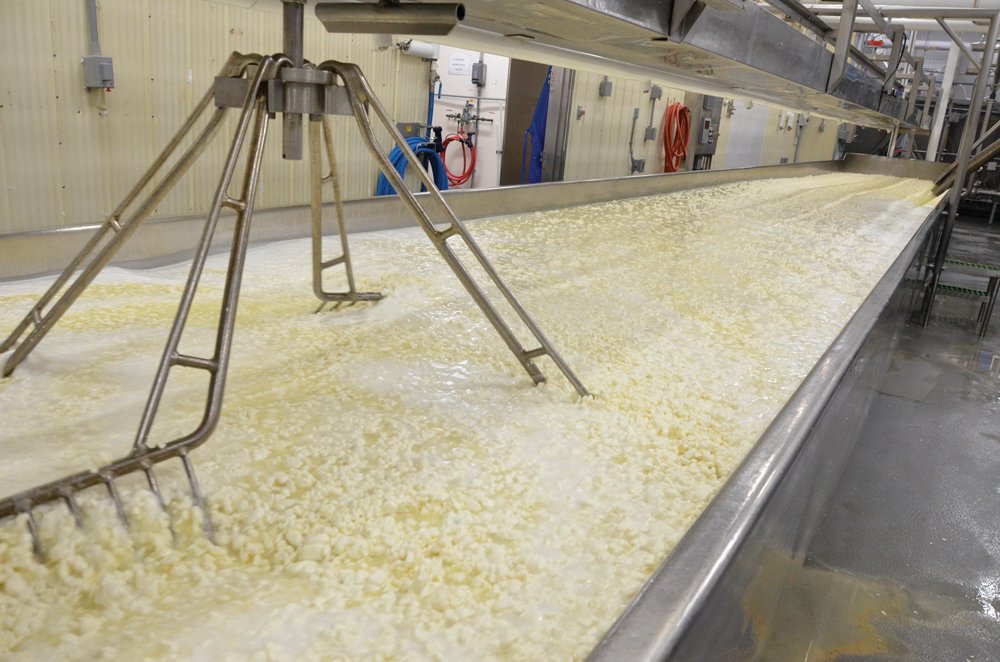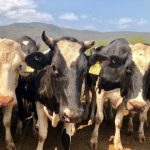
Instead, they are forced to dump their milk and let their produce rot due to falling demand.
In an effort to serve those in need and minimize food waste, U.S. Rep. Mark Pocan of Wisconsin introduced a bill Tuesday that would give the U.S. Department of Agriculture (USDA) power to pair dairy producers who have excess milk supplies with food banks suffering from shortages.
If approved, the bipartisan bill called the Farmer’s Milk in Low-Income Kitchens (MILK) Act would expand the existing USDA Milk Donation Reimbursement program with the help of an additional $4 million a year, according to a news release from the congressman’s office.
“Since the beginning of the Trump administration, Wisconsin alone has lost over 1,900 dairy farms, and if we don’t act quickly, this pandemic will further devastate our farmers,” Pocan said in the release. “No dairy farmer wants to throw away milk, and this bill will make it easier for that excess milk to help those who are feeling the economic pain of this pandemic.”
The current program requires dairy farmers to build partnerships with food banks on their own, then apply for reimbursements to cover expenses, the release said.
But the introduced MILK Act would give the USDA authority to do this for the farmers with nearly double the funding to $9 million a year.
The bill would serve to save excess food even after COVID-19 — the disease the coronavirus causes — subsides, although it continues to strip American’s of their jobs, making it hard for people to buy necessities such as food.
FOOD INSECURITY
About 14.3 million U.S. households were considered food insecure at some point during 2018, according to the USDA.
This means the people in these homes were “uncertain of having, or unable to acquire, enough food to meet the needs of all their members because they had insufficient money or other resources,” the department said.
Another 5.6 million U.S. households had “very low food security” in 2018, meaning food intake was reduced or disrupted in order to ration out what members could afford, the USDA said.
Meanwhile, 98% of food banks are increasing demand for food assistance, according to a survey conducted in April by Feeding America, a nonprofit organization that has a nationwide network of more than 200 food banks.
DAIRY FARMERS FACE OTHER PROBLEMS
What’s more, milk farmers have already been suffering from changing consumer habits that have plummeted their demand.
For one, Americans are increasingly switching to non-dairy alternatives such as almond and soy milk, according to CNBC.
Nearly 20,000 licensed dairy farms have gone out of business over the past decade, “a roughly 30% decline,” the outlet said of the USDA’s reports.
Even more devastating has been Trump’s trade war with China.
Tom Vilsack, head of the U.S. Dairy Export Council, said dairy exports to China were breaking records early in 2018 for whey, protein concentrate and cheese, according to an interview with NPR.
But later that year, Beijing “retaliated against President Trump’s tariffs on Chinese imports,” which caused U.S. dairy exports to China to drop by 54% in the first half of 2019, the outlet reported.
Part of the drop was in whey exports, which is used to feed hogs, Vilsack told NPR.
In addition to the trade wars, China was dealing with the African swine fever that was killing domesticated pigs there at an alarming rate, he said, which decreased demand even more.
Going forward, the House of Representatives will need to approve the bill before it is presented to the president.
























